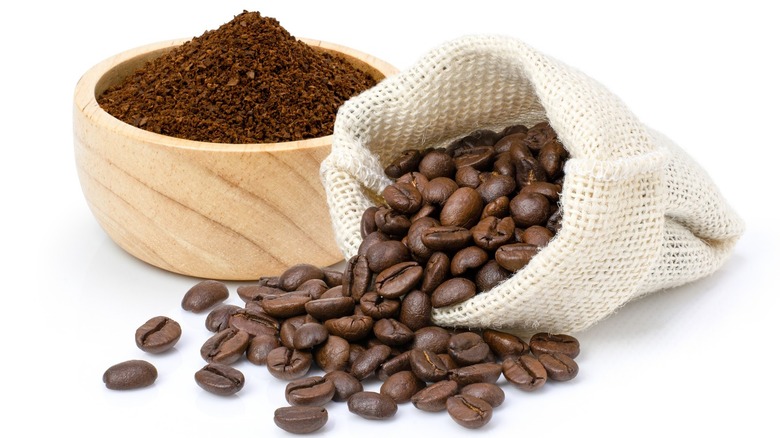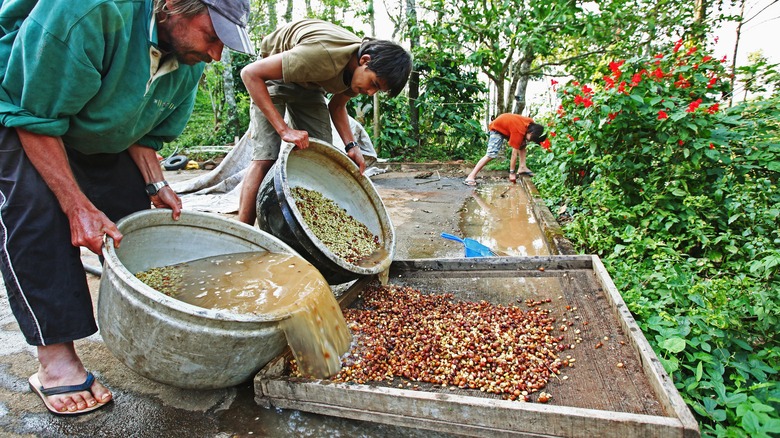What's The Difference Between Natural And Washed Coffee?
So, you've learned what type of coffee you like. Whether you're drawn to the rich, chocolatey notes of Brazilian coffee for your morning cappuccino or the single-origin Honduran bean for your pour-over, you've got the subtleties of specialty coffee down. When you're buying a bag from your favorite roaster, you may also notice that, in addition to flavor notes and country of origin information, bags may also list the process type.
Processing refers to what happens to coffee fruit after it is harvested. Coffee cherries are members of the berry family, and their seeds are what we use to make a cup of coffee. Two of the most common processing methods are washed and natural. These terms for processing can be confusing. After all, isn't all coffee natural? All process practices need the bean to be dried out; the variation comes from how it is dried. Washed coffee requires that the beans have their fruit stripped off before getting tossed into big containers of water to remove any remaining pulp. Then, they are finally left to dry, usually by the sun.
On the other hand, natural processing keeps the fruit on the coffee bean as it dries in the sun. Then, when the cherry is fully dry, the beans are manually pitted. But does it matter how a bean is processed, and can you tell the difference when you taste the actual coffee? For studied coffee enthusiasts, the answer might be yes.
What difference does coffee processing make?
Why a coffee farm chooses one method over another majorly depends on the region and its climate. If the area does not have access to clean or abundant water, the washing method is not feasible, so they may opt for natural or honey processing, which requires dry and hot conditions. Countries with high humidity or rainfall won't be able to keep the beans dry in the sun. But that isn't the only factor roasters and farmers consider when choosing between washing or natural processing.
The processing method can alter the flavor of coffee beans. For instance, washing — also known as wet-processing — tends to lead to more consistent batches of beans because the fruit isn't left to ferment over time, which can leave funky and acidic flavors behind (for better or for worse). But some roasters and coffee drinkers seek out that natural variance to produce more interesting cups of coffee. Natural processing, or dry-processing, keeps the pulp and fruit intact during the drying process, so the beans take on more fruity flavors. Most roasts are washed instead of naturally processed because the flavor is easier to control in bulk batching. If a roaster offers a full or partial natural roast, it's most likely to be a high-quality single-origin — and its consistency and flavor can be vouched for. That said, be prepared to taste some new flavors you might not have before.

